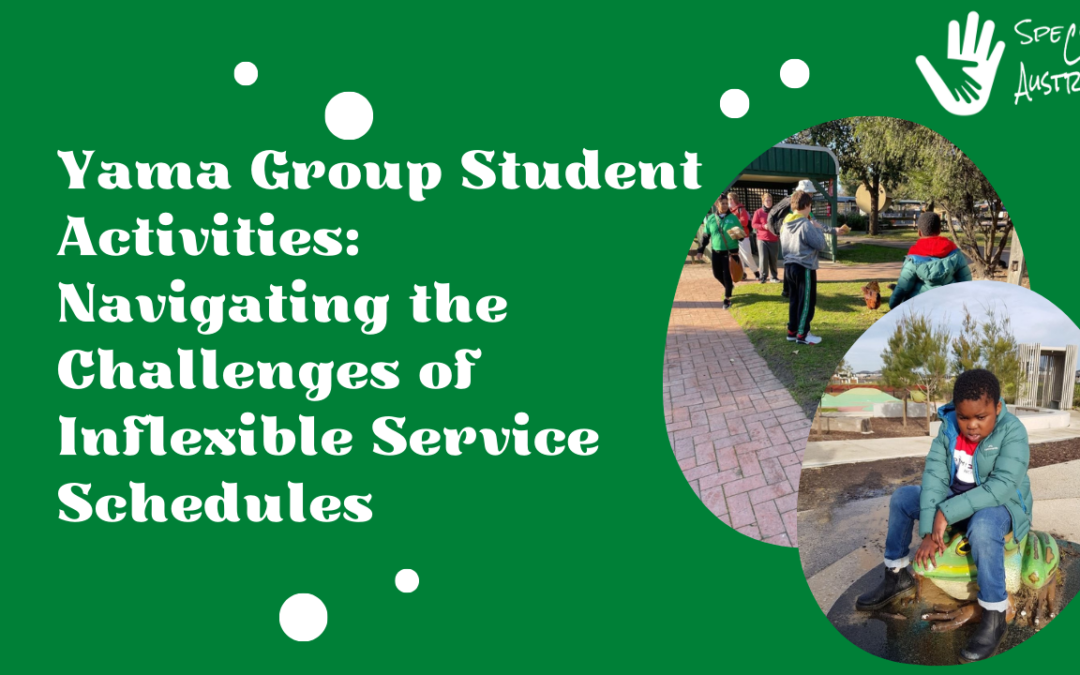Living with a disability means that every aspect of life requires careful planning and structure. This is especially true for extracurricular activities and support services designed for students with special needs. Many families relying on Disability Support Services often find themselves grappling with the rigid schedules of these programs. Despite the comprehensive nature of these services, the fixed timings often clash with the varied routines of families, leading to frustration and stress.
The Strain of Rigid Scheduling
Many parents frequently face the challenge of balancing work commitments, personal errands, and the necessity of being present for their child’s activities. The rigid schedule of some support services programs leaves no room for the spontaneous changes that are a routine part of life for families with children with special needs. This inflexibility can lead to stress and burnout as parents strive to juggle various responsibilities.
The Need for Flexibility and Convenience
Given these challenges, there is a growing demand among families for more flexible and convenient scheduling options. Tailoring support services to fit into the family’s existing routine would not only reduce stress but also enhance the overall effectiveness of these services. Families are increasingly looking for high-quality disability support services in their local areas like Cranbourne that offer customizable schedules that better align with their unique needs.
YAMA (means “hello” in Aboriginal) Group and is created especially for students with special needs by Special Care Australia. Group’s weekend activities, which take place from Friday through Sunday, provide a wonderful opportunity for students to flourish and form deep connections within their age group. YAMA Group’s weekend activities could be booked at varying times, i.e. for one day or for a whole weekend (once we know the child) allowing parents to choose slots that fit around their other commitments. This kind of flexibility would ensure that children do not miss out on valuable activities and support due to scheduling conflicts. Moreover, it would show a deeper understanding and empathy towards the unique challenges these families face.
The Fear of Misalignment with Daily Routines
Another significant concern for families is the fear that essential services might not fit into their daily routines. This fear is not without basis, as many services, despite their good intentions, often fail to consider the complexities of integrating into an already packed schedule.
For example, a student might have therapy sessions, doctor appointments, and school activities, making it difficult to fit in additional support services without causing disruption. This fear extends to the potential impact on the child’s well-being. Consistency and routine are crucial for children with special needs, and any disruption can lead to heightened anxiety and stress. Parents worry that the lack of flexible scheduling could lead to missed opportunities for their children to benefit from programs designed to foster social skills and provide much-needed respite to the families.
Moving Towards a Balanced Approach
In light of these challenges, there is a pressing need for more balanced and flexible approaches to support services. This could include offering more personalized scheduling options, such as evening or weekend sessions, and ensuring that there are backup plans in place for families who may need support services at short notice.
Implementing a feedback system where families can voice their scheduling challenges and suggest improvements could also be beneficial. By actively listening to the needs of the families they serve, service providers can adjust their offerings to be more inclusive and accommodating.
Conclusion
The benefits of programs like YAMA Group’s school holiday activities and weekend activities are undeniable. Flexible scheduling is not merely a matter of convenience; it’s a fundamental aspect of providing effective and timely support. By responding to the demand for more adaptable and convenient options, Special Care Australia has significantly enhanced the quality of life for students with special needs and their families. This means considering the unique and diverse needs of each family and allowing for a personalized approach that respects their daily routines and commitments.
In conclusion, embracing flexibility in scheduling Special Care Australia has transformed the landscape of disability support services in Australia. By prioritizing the person-centered approach Special Care Australia has created a more inclusive, supportive, and effective environment for students with special needs, ensuring they receive the care and opportunities they deserve without the added stress of rigid scheduling constraints. Programs like YAMA Group’s, which focus on deep connections and building resilience, explore and provide life-changing experiences for the participants.








